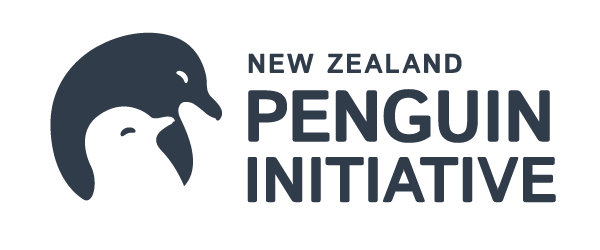The kororā plight in Gisborne
Andrea and Hiltrun adventured to Gisborne last month to meet up with the local residents Bree Skinner and Carrie Taoho, who had reached out to us about the construction of a new seawall at Eastland Port, which was negatively impacting local penguins. Our trip to Gisborne started with a meet and greet where we also met Karen Pewhairangi, who was representing the local iwi Te Whānau-a-Iwi. We listened to the grim stories they were reporting to us about the destruction of kororā habitats by the port, and their initiative to protect this taonga species.
A report written by John Cockrem estimates that about 35 to 70 kororā nests were destroyed during the construction. You can read more about this on the Gisborne Herald. Bree and Carrie witnessed a kororā lay an egg on the open ground in the construction area, and numerous displaced kororā that couldn’t return to their nests that had been destroyed right in the middle of the breeding season in 2021. Soon, there were sightings of dead kororā all along Kaiti Beach, which was unprecedented until now. According to the management plan put together by Ecoworks, three kororā deaths were confirmed on Onepoto Beach and all of them were necropsied and confirmed to be dog attacks.
Kororā footprints
Before we visited, Carrie and Bree were already surveying Kaiti Beach for kororā footprints, recording observations such as calls from sea and land, and monitoring the number of penguins getting back to land at night.
We thought we could best support them by trying to find suitable areas nearby that could be better protected and made safer for the kororā. We surveyed local beaches for footprints, penguin tracks, faeces, and any other evidence of the presence of these birds.
This group is keen to establish a local monitoring scheme and a rehabilitation centre. We will be supporting them with permit applications and technical advice. They have also visited the rehab centre in Waiheke Island – link – to gather further knowledge. A connection with a local veterinarian was also made to support with the rehab programme but also with the necropsy of dead kororā.
While these are sad stories, learning about them can help to prevent future disasters for kororā colonies. Unfortunately, we came aware of the situation in Gisborne a bit too late to avert most of the harm, but we can help prevent it in other areas if we hear from you in the early stages before the consent is given. If you know about an application for a development that may harm kororā, let us know as soon as possible, and we can join forces and create strong submissions during the public consultation phase.








